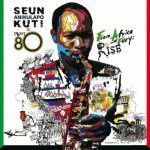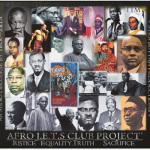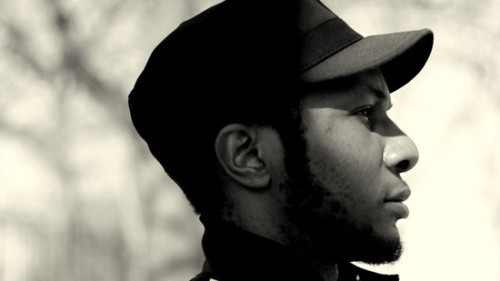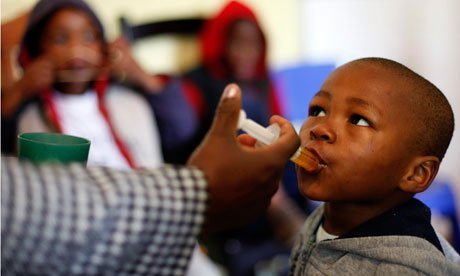Sean Jacobs's Blog, page 580
December 23, 2011
10 West African Club Tracks
I'm a DJ. So it's only right I give you ten songs that filled up my crates in 2011 to play out the year. No rankings, just the first 10 club friendly Afropop tracks I could think of:
When Benjamin Lebrave passed me Sarkodie and E.L.'s "U Go Kill Me" in Accra this summer, I knew that with the Ska piano skank, winding synth, minimal funky drum pattern, catchy chorus, and rapid fire verses, it would be high on my list for club tunes in 2011. Even better, it has become an anthem for the Asamoah Gyan inspired Azonto Dance.
DJ Arafat seems to come up with a new name/persona for every song. After I asked the Ivorian owner of a tape shop in Harlem for some new Coupe Decale, he played the intro for "Frapper Baboula Tala" about ten times in a row. I sometimes do the same thing when I'm alone in the house.
The Sahel Sounds blog brought my attention to some of my favorite music in 2011. After learning about Iba One, and subsequently obsessing over what else might be out there, I went on a Skyrock hunt for some of the latest Malian tunes. There I came across Kaba Blon's "Moribiyassa" a song from the amazing Balani Show scene in Bamako. The song recently became available for purchase internationally on Sahel Sound's Songs from Saharan Cellphones compilation, and the Masalacism label just released a full Décaler Balani compilation this week!
I learned about London based Nigerian girl pop group Shiikane via This is Africa. The Afropop remix of their cover of Lisa Lisa and Cult Jam's "I Wonder if I Take You Home" channels the Francophone club style so well that I think the Parisian take on Coupe Decale/Logobi might finally be ready for the Anglophone mainstream.
I heard Atumpan's "The Thing" everywhere in Ghana and Liberia. My favorite part about hearing it in the club was seeing people sing mockingly to the closest person of the opposite sex, "I am teaching you the thing." It features Stone from the Bradez.
Out of M.I.'s Chocolate City camp, Ice Prince's debut single "Oleku" was the summer jam in 2011, and my favorite tune out of Nigeria. The double time piano line echoes another summer jam from the year before, but the minimal drum beat keeps a tension driven frenzy underneath the whole thing. When this would come on in the club everybody would move in slow exaggerated unison, and then explode into enthusiastic singing when Brymo's chorus dropped.
I don't think I've ever seen one song dominate a nation's psyche like Junior Freeman and African Soldier's "Dumyarea" did in Liberia this summer. Maybe it was because it was an election season, and all the politicians co-opted the song for their own campaigns, but you could not go anywhere and not hear this populist anthem.
PepeSoup's output has been astonishing in 2011. The "Pump Tire" single is one amongst a host of projects that the Italy based Liberian-Italian duo has put out on their Soupu Music label. Their sound takes influences from the vast range of House styles coming out of Europe, but mostly UK Funky which has been inserting a West African sensibility into its scene from the beginning.
So D'Banj singed with Kanye. I don't know what that means, cause I've been waiting to hear anything from Sarkodie on Konvict for over a year now. Regardless, Oliver is a nice club tune, and I'm excited for the video to drop. Don Jazzy again!
Cabo Snoop and his genius producer I.V.M. Beats broke a more Kuduro influenced House sound into the Afropop mainstream in 2010. Unfortunately, I.V.M. Beats passed away in a tragic car crash early in 2011. Still, now that South African House has firmly made it to the electronic music mainstream, it's Angola's turn to shine. DJ X Trio is helping make sure that happens by remixing South African songs like Professor's "Jezebel". This tune was a staple in my sets this year. Check out Benjamin Lebrave's write up on it at The Fader.
Happy New Year. See you on January 5, 2011.








The Hall of Shame
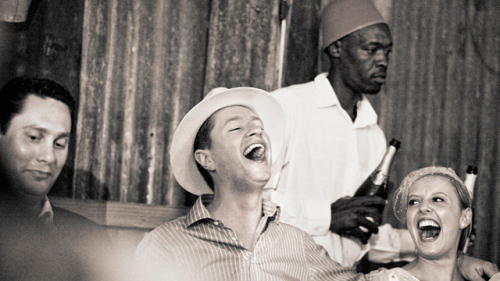
Before Boima rides us out this year with West Africa's best dance tunes, we couldn't resist including a post with some of the lowlights of 2011.
Colonial Themed Weddings
New South Africans can't help themselves. The white couple, "Dave and Chantal," who thought a "colonial" (and Apartheid) theme at their wedding in South Africa complete with an all-black waiter staff in red fezes would be cool. Read our account and the comments here. And while we're on the subject of the rainbow nation, what about the white guy who posed with a gun in hand while kneeling over what appears to be a lifeless black child in South Africa like he killed an animal on a hunt. To make things better, he claimed he got "permission" from the parents of the child, who happened to work on his friend's farm. Yeh, it's like the new South Africa down on the farm. Then there are people who come up with ad campaigns like this one. This is of course all Julius Malema's fault.
The DSK-Diallo Coverage
The DSK/Diallo case coverage, particularly in the New York Post, and sometimes the New York Times (when it gleefully reported defense leaks) and definitely the French media, which very nonchalantly reported the details of Diallo's identity long before she came out to do the interview and described her as "not very seductive"/unattractive.
Nicholas Kristof
Because he can't help himself. Elliot Ross has described Kristof as "probably the most hardline fetishist of the African body in pain" on this blog. Two examples from 2011: here and here. And here is a bonus link where Kristof guest stars with George Clooney. No he is not playing the romantic lead.
The Nude Revolution in Egyptian
Basically everyone involved in that affair, including journalists who reported on it.
Condé Nast Traveler and CNN
The luxury travel magazine included Libya as a holiday destination in its April edition — yes, months into the Libyan civil war — among its 15 Best Places to See Right Now. The 250-word blurb proclaims "a door long shut is open again," and ends with a recommendation to fly Lufthansa from New York's JFK via Frankfurt to Tripoli, which has since been shrouded in a NATO-imposed no-fly zone. They did the same with Egypt in their February issue. Then there's CNN confusing Libya with Lebanon. But of course Libya is in the Middle East, right.
Rapper 50 Cent
He wants to stop child hunger in Africa while helping the sagging sales of his energy drink.
The Mandela Grandchildren
Three of Nelson Mandela's grandchildren are getting their own reality TV show. Word is it will also be available on US cable television. One journalist likens the show to something resembling "the Kennedys, with a dash of the Kardashians." I can't even imagine what that means.
Parachute Journalism
Time Magazine's "correspondent for West Africa," for her parachute journalism on Foreign Policy's website about political developments in South Africa. First read her opinion piece and then read Jonathan Faull's takedown of Leigh on AIAC here.
Some foreign correspondents and celebrities who have to pose with African children in photographs because the local adults don't want to.
Finally, to those few commenters to this blog who feel compelled to remind us that Africa is not a country: we appreciate you.








December 22, 2011
10 African Albums of 2011
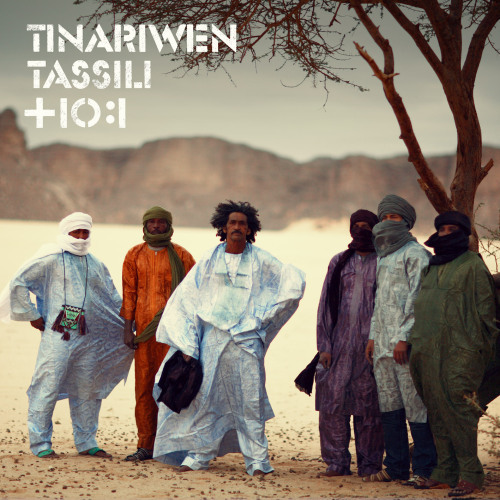
Tinariwen
Tassili
Mali
Quote: "I go quietly to pay Mizgawa a little visit."
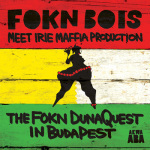 FOKN Bois meet Irie Maffia Production
FOKN Bois meet Irie Maffia Production
The FOKN DunaQuest In Budapest
Ghana/Hungary
Quote: "We see demma Maffia side, but now everything be Irie."
Nigeria
Quote: "Our ear don't fool for your words, our stomach still empty."
Nigeria/Canada
Quote: "No lyrics, just snippets."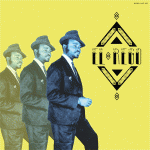 El Rego
El Rego
Benin
Quote: "This isn't the sort of one-world pabulum available in your Whole Foods check-out line."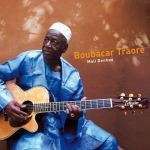 Boubacar Traoré
Boubacar Traoré
Mali
Quote: "There's all kinds of things in the idea of Midnight."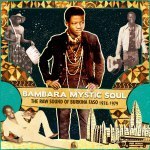 Various Artists
Various Artists
Bambara Mystic Soul – "The Raw Sound of Burkina Faso 1974-1979."
Burkina Faso
Quote: "The record documents a time prior to the military coups." Blitz The Ambassador
Blitz The Ambassador
Ghana/US
Quote: "I don't know what the future holds."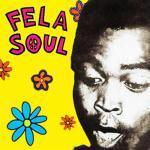 Amerigo Gazaway
Amerigo Gazaway
US/Nigeria
Quote: "For this one I was basically trying to recreate the Jake One beat using Fela Kuti samples."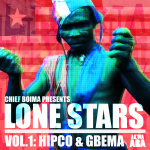 Various Artists
Various Artists
Chief Boima presents Lone Stars: Hipco and Gbema Vol. 1
Liberia
Quote: "After we ate, and the son and his friends performed for the guests, we all sat through a lecture by the politician's wife on how being a musician wasn't a serious job."
* If people still bought full albums…we would suggest them buying these 10 from 2011 for their friends — like we did. (List compiled with Sean Jacobs.)








If people still bought full albums…

Tinariwen
Tassili
Mali
Quote: "I go quietly to pay Mizgawa a little visit."
 FOKN Bois meet Irie Maffia Production
FOKN Bois meet Irie Maffia Production
The FOKN DunaQuest In Budapest
Ghana/Hungary
Quote: "We see demma Maffia side, but now everything be Irie."
Nigeria
Quote: "Our ear don't fool for your words, our stomach still empty."
US/Africa
Quote: "No lyrics, just snippets." El Rego
El Rego
Benin
Quote: "This isn't the sort of one-world pabulum available in your Whole Foods check-out line." Boubacar Traoré
Boubacar Traoré
Mali
Quote: "There's all kinds of things in the idea of Midnight." Various Artists
Various Artists
Bambara Mystic Soul – "The Raw Sound of Burkina Faso 1974-1979."
Burkina Faso
Quote: "The record documents a time prior to the military coups." Blitz The Ambassador
Blitz The Ambassador
Ghana/US
Quote: "I don't know what the future holds." Gummy Soul
Gummy Soul
US/Nigeria
Quote: "For this one I was basically trying to recreate the Jake One beat using Fela Kuti samples." Various Artists
Various Artists
Chief Boima presents Lone Stars: Hipco and Gbema Vol. 1
Liberia
Quote: "After we ate, and the son and his friends performed for the guests, we all sat through a lecture by the politician's wife on how being a musician wasn't a serious job."
* …we would suggest them buying these 10 from 2011 for their friends — like we did. (List compiled with Sean Jacobs.)








What you should be reading
I wasn't pleased with the selection of short stories listed for the Caine Prize this year. That list made African writing look bad. Truth be told, the problem associated with such collections is hardly applicable to the Caine committee alone. Lists like that makes it seem like African writing remains subpar, and is simply being given a charitable helping hand by the largesse of nice prize-giving people.
Happily, the list below, including some of the most absorbing books of 2011, will convince you otherwise – read them all if you can (and please add those you'd recommend in the comments area below). I received several of the books for birthday presents/random presents from my partner, and read them on the journeys we make between New York City (where he works) and upstate New York (where I work). On those long train rides along the Hudson River–flowering trees, the 'V's of returning Canada geese, and kayakers in springtime to ice floes and 19th century industrialists' castles, revealed among trees shorn of foliage during mid winter – there's been more than one instance that someone sitting near us asked to have a look at the book I was reading. And surprise: their pleasure, from the first pages, was so obvious that I let these random strangers keep the book for the journey, re-learning what they know about African intellect, African poetics, African multiplicity in thought, ways of being, and life experience.
Open City by Teju Cole
I taught this book this fall semester to a class of seniors, fearing that the quiet introspection of Cole's narrator, Julius, wouldn't catch my students' interest. I needn't have worried: the hottest woman in class, charged with introducing the book, declared, "I feel like this is a guy you want to be friends with." (Dreamy look included.) I'll save a brainy analysis for the spring, when AIAC returns.
One Day I Will Write About This Place by Binyavanga Wainaina
This one. I was laughing so hard as I read the opening chapters that I was compelled to read a few paragraphs aloud to my partner, so he could share the fun. There's so much here that reminded me of my own journey from childhood to maturity – watching endless reruns of Six Million Dollar Man, the forced nationalism of the yearly Independence Day celebrations, the mindless routines of boarding school, never-ending sibling tensions, and the stultifying fear that one will never make as good as one's parents banked on – that these passages elicited invocations that no American memoir has ever conjured up for me. Mr. Wainaina's book was one I gave up to a fellow passenger, with an added introduction to Wangechi Mutu's art, which graces the cover of the hardback.
Memoirs of a Porcupine by Alain Mabanckou
Originally published in French in 2006 and only translated into English this year, this is crime fiction with an almost caricatured level of style, rhythm and timing worthy of a stand-up comic, and harrowing twists. No full-stops in the entire book. No wonder the officialese in the French Republic are falling all over themselves trying to incorporate "Mr. Mabancool" into its own stultified nationalism.
Half-Blood Blues by Esi Edugyan
Born in Canada to Ghanaian immigrant parents, Esi Edugyan was a 2011 Man Booker Prize finalist. She won the 2011 Scotiabank Giller Prize, Canada's biggest literary prize, beating a formidable shortlist, which included Michael Ondaatje. The narrator, Sid Griffiths, is an African-American jazz musician; he travels to Germany in 1952 to attend the premiere of a documentary about Hieronymus Falk, a black trumpet player and jazz legend, who was forbidden to play by the Nazis and subsequently arrested and 'disappeared' by the Nazis. Griffiths explores the remnants of that legacy – not only the life-threatening nature of being a black musician in Hitler's Germany, but what it is like to be in a place with such memory.
What the Day Owes the Night by Yasmina Khadra
Khadra's novel about Algeria chronicles rifts between lovers, family and friends, and loyalty to nation. Younes, the narrator, is a heartbreaker – not necessarily in the traditional Romantic sense, but in his meandering inability to make decisions — readers will align themselves so much with Younes that their hearts will drop whenever he makes a poor decision. The story is a chronicle of the legacy inherited from of a family and a social world that disables individual strength, for the sake of social unity (which then means that everyone is unhappily together).
Anatomy of a Disappearance by Hisham Matar
In the Cairo apartment Nuri shares with his father, he remains inconsolable, filled with the emptiness that his mother's unexplained death leaves behind. Nuri seems to dissipate into that explosive void, until he meets Mona: her yellow swimsuit dazzling and absorbing as the sun. Needless to say, some Oedipal complications follow.
Oil on Water by Helon Habila
Habila's strength is in that he is able to raise broader political and societal concerns, guiding his readers using different narrative strands that weave together a larger story about the rich, beautiful, yet fragile environment of the Delta, as it is being devastated by the greed for oil and money.
The Granta Book of the African Short Story, edited by Helon Habila
This new anthology proves that collections of short stories from Africa don't have to be a charitable overreach. Ambitious, wide-ranging, and rich collection of stories by twenty-six writers from nineteen countries all across Africa – stories written in English or translated from French, Portuguese or Arabic. Helon Habila's own writing is a deep pleasure to read, so it's no wonder that his list of choices are reflective of linguistic, aesthetic and lyrical ability, rather than on polemics or ability to "represent" Africa according to preconceived notions. A treasure to have at your bedside, especially if you're an insomniac.

December 21, 2011
2011: The Year of the Woman
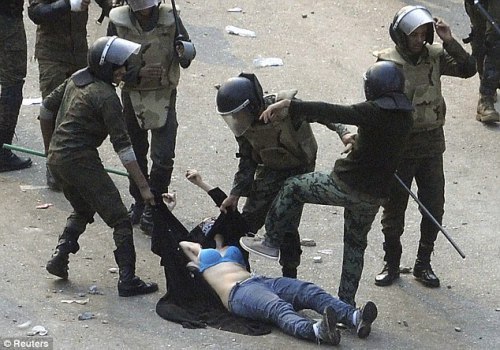
It was a great year, maybe one of the best ever, for direct action in-the-streets in-your-face pro-democracy movements, and they were largely pushed and pulled by women. Starting with Tunisia, food uprisings spread quickly to Egypt, Algeria, and elsewhere across the continent. Sometimes, big men were pushed out.
Leymah Gbowee was one of three women awarded the Nobel Peace Prize this year. Gbowee and Tawakul Karman, of Yemen, won the award for building peace the old-fashioned way: mass mobilization, individual courage, insistence on keeping one's eyes on the prize, and identifying the prize itself as full and participatory, engaged and sustained democracy.
In Egypt, women of Tahrir Square moved a national conversation from one of reform to one of liberation and then they pushed Mubarak out. And what do we see when we look at the news from Tahrir Square today? Soldiers attack, beat and otherwise abuse women. And the women keep on keeping on. And keep on keeping on. It ain't over til the women sing.
In Uganda, the Walk-to-Work movement, which didn't get much attention from the mainstream media of the Global North (but maybe that's a good thing, given the quality of coverage), was largely led and populated by women, like Ingrid Turinawe, who stopped work, proposed new forms of insurgence and intervention, and, not incidentally, called attention to the conditions in Uganda's prisons, in this instance Luzira Prison.
Speaking of Uganda, over the weekend, the country's government committed itself to reducing maternal mortality by 50%. Whether or not that commitment is real or in good faith, the simple statement is part of an important trend across the continent this year — the trend to recognize maternal mortality as a public health issue, a women's issue, and a human rights issue. By issue is meant crisis. Too many women die in childbirth. Also the Kenyan government promised to reduce death in childbirths, while rural Kenyans organize new ways to ensure the safety of pregnant women and women in childbirth. Meanwhile, in South Africa, the state continues to make excuses, rather than support solutions.
In many ways, the global attention to maternal mortality as something governments can actually address, rather than bemoan, began two years ago with Amnesty's report, "Demand Dignity: Case Studies on Maternal Mortality," which focused on Sierra Leone, Peru, the United States, and Burkina Faso. Amnesty's intervention was to see maternal mortality rates as human rights violations. It is a story that will continue into the next year.
Another major human rights story, across the continent, continues to be the rights, safety and well-being of LGBTIQ communities and persons. In South Africa, the trial of the killers of Khayelitsha lesbian activist Zoliswa Nkonyana draws to a close with sentencing hearings. Photographer, advocate, activist and organizer Zanele Muholi continues to open new pathways. In Uganda, gay rights activist David Kato was brutally murdered in January. In Kenya, gay rights activist David Kuria announced just this week that he will run for political office. That would make him the first openly gay candidate to do so — in the country's history. And meanwhile the seemingly endless wave of homophobic legislation continues to sweep across the continent, but not without LGBTIQ activists and their supporters organizing in various venues. At the same time, gay and lesbian asylum seekers, like Ugandans Brenda Namigadde or Betty Tibikawa, struggle, often on their own, for refuge in distant and frequently inhospitable circumstances.
Finally, well almost finally, while women continue to be targeted by land grabs — in South Sudan and Uganda, in Kenya, and everywhere — African women workers also came to the fore this year in two particular ways. First, thanks to the International Labour Organization and local, regional and national domestic workers organizations, such as SADSAWU in South Africa, the concept of decent work for domestic workers began to take hold. This could begin to mean something positive in the lives of African transnational domestic workers, especially in the Middle East and in Europe, as well as at home. Second, the world began to recognize, formally, that small hold farmers [a] exist and [b] are a crucial component, and should be critical participants, in any discussion on food sovereignty, food security, health and climate change. And who are those farmers and farm workers? Women. Especially in Africa. They are not, as they've been described, "a low skill base." Rather, women farmworkers, like those in the vineyards or the orchards of the Western Cape, or the sugar plantations of Kwa-Zulu Natal of South Africa, are not the problem. They are, or could be, part of a sustainable and sustaining food production chain.
Finally, it was a year in which we lost many. I will close with one, Wangari Maathai. Rest in peace. Hamba kahle.

The Year of Frantz Fanon
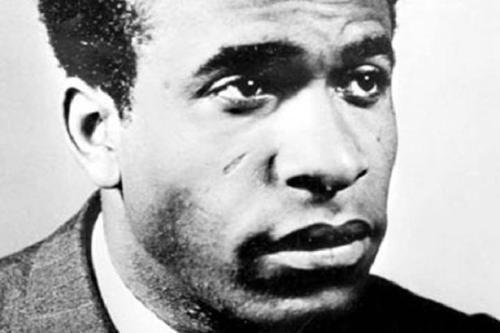
Four moments that stirred heated debate in France this year were the cases against rapper Youssoupha and IMF Head Dominique Strauss-Kahn, the unveiling of the Paris exhibiton Human Zoos: The Invention of the Savage, curated by former French footballer Lilian Thuram, and the 50th anniversary of Frantz Fanon's death. With the latter came the publication in French of Fanon's Œuvres (La Découverte, 800 p.), with a preface by Achille Mbembe ('L'universalité de Frantz Fanon'). When we approached Mbembe for an English version of the text, he sent us the following shorter essay — which we offered to translate from the original French.
By Achille Mbembe
Fifty years ago, Frantz Fanon passed away leaving us with his last testimony, The Wretched of the Earth.
Written in the crucible of the Algerian war of independence and the early years of Third World decolonization, this book achieved an almost biblical status. It became a living source of inspiration for those who opposed the Vietnam War, marched with the civil rights movement, supported revolutionary black struggles in America, the struggle against Apartheid in South Africa and countless insurgent movements around the world.
Fanon's life had led him far away from the island of Martinique in the Caribbean where he was born a French citizen. He took part at the age of nineteen in the war against Nazism only to discover that in the eyes of France he was nothing but a "Negro", that is, anything but a man like any other man.
By any means necessary
He would end up feeling a deep sense of betrayal. Black Skin, White Mask – his first book – partly relates the story of this and many other fraught encounters with colonial forms of dehumanization.
But it was in Algeria where he worked as a psychiatrist that Fanon finally cut the cord that bound him to France. The country for which he had almost lost his life in the struggle against Hitler had started to replicate Nazi's methods during a savage and nameless war against a people which it denied the right to self-determination.
About this war Fanon often said it had taken the look of an authentic genocide. Having sided with the Algerian people, France disowned him. He had betrayed the nation. He became an enemy and long after his death, France treated him as such.
For those committed to the cause of oppressed people or fighting for racial justice, his name nevertheless remained not only a sign of hope, but also an injunction to rise up. Indeed to Fanon we owe the idea that in every human being there is something indomitable which no domination – no matter in what form – can eliminate, contain nor suppress, or at least completely.
Fanon tried to grasp how this "something" could be reanimated and brought back to life under conditions of subjugation.
He argued that this irrepressible and relentless pursuit of freedom required the mobilization of all life reserves. It drew the human subject into a fight to the death – a fight he was called upon to assume as his own task, one he could not delegate to others.
Fanon was also convinced that colonialism was a force animated at its core by a genocidal drive.
To destroy colonialism could only be ensured by violent means, an "absolute praxis" whose goal was to produce life and to free the world from the burden of race.
Post-liberation culture and politics
His diagnosis of life after colonialism was uncompromising.
For him, there was a distinct possibility that post-liberation culture and politics might take the road of retrogression if not tragedy. The project of national liberation might turn into a crude, empty shell; the nation might be passed over for the race, and the tribe might be preferred to the state.
He believed that the liberation struggle had not healed the injuries and trauma that were the true legacy of colonialism.
After liberation, the native élite had been ensconced in intellectual laziness and cowardice. In its will to imitation and its inability to invent anything of its own, the native bourgeoisie had assimilated the most corrupt forms of colonialist and racist thought.
Afflicted with precocious senility, the educated classes were stuck in a great procession of corruption.
The innermost vocation of the new ruling class seemed to be part of the racket or the loot. It had annexed state power for its own profit and transformed the former liberation movement into a trade union of individual interests while making itself into a screen between the masses and their leaders.
Fanon was equally scornful of nationalization which he saw not as a genuine mechanism to build a national economy but as a scandalous, speedy and pitiless form of enrichment.
He warned against the descent of the urban unemployed masses into lumpen-violence. As soon as the struggle is over, he argued, they start a fight against non-national Africans. From nationalism they pass to chauvinism, negrophobia and finally to racism. They are quick to insist that foreign Africans go home to their country. They burn their shops, wreck their street stalls and spill their blood on the city's pavements and in the shantytowns.
Surveying the postcolony, Fanon could only see a coming nightmare – an indigenous ruling class luxuriating in the delicious depravities of the Western bourgeoisie, addicted to rest and relaxation in pleasure resorts, casinos and beaches, spending large sums on display, on cars, watches, shoes and foreign labels.
In his post-liberation nightmare, he could distinctly see stupidity parading as leadership, patriarchy turning women into wives, vulgarity going hand in hand with the corruption of the mind and of the flesh, all in the midst of hilarity and demobilization.
The spectacle of Africans representing themselves to the world as the archetype of stupidity, brutality and profligacy, he confided, made him angry and sick at heart.
To read Fanon today means to translate into the language of our times the major questions that forced him to stand up, to break away from his roots, and to walk with others, companions on a new road which the colonized had to trace on their own, by their own creativity, with their indomitable will.
All around us, it is easy to see elements of his nightmare. Globally, new forms of colonial warfare and occupation are taking shape, with their share of counter-insurgent tactics and torture, Delta camps, secret prisons, and their mixture of militarism and plundering of far-away resources.
New forms of social Apartheid and structural destitution have replaced the old colonial divisions. As a result of global processes of accumulation by dispossession, deep inequities are being entrenched by an ever more brutal economic system. The ability of many to remain masters of their own lives is once again tested to the limits.
No wonder under such conditions, many are not only willing to invoke once again Frantz Fanon's heretic name, his sparkling, volcanic and exploding face. They are willing to stand up and rise again.
I myself have been attracted to Fanon's name and voice because both have the brightness of metal. His is a metamorphic thought, animated by an indestructible will to live. What gives this metallic thinking its force and power is the air of indestructibility and the inexhaustible silo of humanity which it houses.
* Achille Mbembe is a research professor in history and politics at the University of the Witwatersrand. His latest book, Sortir de la grande nuit, was published in 2010 in Paris.

The Rough Guide to the "Arab Spring"

Here goes my list of Top Ten bloggers, politicians and journalists who are related to the "Arab Spring" of 2011. I can't stand the term "Arab Spring" but for the sake of Africa Is A Country's 10×10 theme, let's use it as an ironic reference.*
Jadaliyya
Jadaliyya is the kick-ass open-source news and opinion blog arm of the Arab Studies Institute, which also puts out the Arab Studies Journal. The contributors are geographically, linguistically and professionally diverse, so Jadaliyya provides a unique opportunity to gain insight into matters of the so-called "Arab" world from a huge variety of positionalities.
Atef Said
Said is actually one of those incredible writer/lawyer/academics that I'm embarrassed to not have known of earlier. His early comments on the ongoing Egyptian revolution in such online and print publications as The Immanent Frame and Jadaliyya are magnificent, but do make sure to follow him on Twitter for up-to-date news and on-point analyses of current events in post-Mubarak Egypt.
Hossam el-Hamalawy
Probably well overstated in 2011 already, but Egyptian journalist and long-time activist Hossam el-Hamalawy of Arabawy fame continues to provide incredible photo, video and news reports from Egypt (I covered him earlier this year here).
Gamal Hassan
Leader of the ultra-Salafi Al-Nour political party. Dude successfully helped to lead Al-Nour to some pretty major victories in the Egyptian parliamentary elections, and he freaked the hell out of the United States while he was at it. We'd like to give ironic props to the master of Islamist take-over terror in 2011.
Anderson Cooper
For getting his ass kicked (more like pushed around) in Cairo during the inexplicable 25 January 24-hour newscasting on Egypt by American journalists who remained happily ignorant of the fact that their ability to even get to Egypt during the first 18-day uprising was thanks to the fact that their government was keeping our dictator in power. A beat-down on Anderson Cooper is the best kind of Anderson Cooper episode. Thanks for the coverage bro.
Laura el-Tantawy
And her contributions to burn magazine. The first piece by el-Tantawy I was put onto was a photo blog of Cairo during the initial uprising. Beautiful, thoughtful, and so necessary. More recently, her post on Reda Abdelaziz Mohamed, a young man blinded by the Egyptian military while trying to carry away the corpse of a fellow protester, reminds us all how far we have left to go before our country is truly free.
Tunisian hip-hop artist El General. Why? This:
Alaa Abd El Fattah
@alaa on Twitter. Actually, his whole family — his father Ahmed Seif El-Islam Hamad, his mother Laila Soueif (yes, novelist Ahdaf Soueif's sister), his sister Mona Seif, his wife Manal Hassan and everyone else. What a brilliant family. We are still praying for his release and wishing him a quick return to his family.
Nawal el Saadawi
My African feminist superstar, but also revisit here and here to see why she should be your feminist superstar too.
EGYPTIAN ULTRAS
Our army of radical and rabid football fans has taken their Ahly v. Zamalek energy and transformed it into some serious anti-SCAF ass-kicking. Ultras, we'll never misjudge you again. You are real Egyptian heroes. (Even if you are Zamalekawy).
* For those of you who read the blog regularly, you know it's because the word 'Arab' is an imperial and ahistorical term that creates a false distinction between 'North' and 'Sub-Saharan' Africa. Photo Credit: Art installation made of burned-out police cars in Sidi Bouzid, the village where Mohammed Bouazizi self-immolated and the "Arab Spring" began.








December 20, 2011
The Top 10 African films of 2011
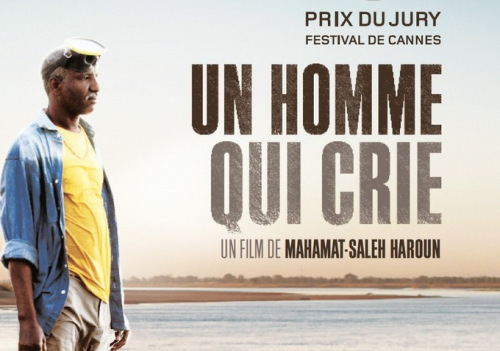
2011 was a good year for African cinema. In various cinema seats and at home, I've been intrigued and moved, horrified and sickened, surprised and hugely entertained by a group of industries that together we call 'African cinema' — a sign that what can be expected is anything but stereotypical. In the list below, I've chosen films that have expanded what we might think of as 'African cinema'. Some short films, some documentary, some fiction, some a strange mix of them all.
However, the films I can't list are perhaps the most powerful ones of the year; those captured on mobile phones and camcorders during critical moments in uprisings, revolutions and elections that have continued to broaden our grasp on the lives and experiences of those whose lives are not yet captured by cinema. This is a new kind of viewing, and one which I think will continue to transform the aesthetic, narratives and distribution of African film in 2012.
(A note for readers: some of these films were released in 2010, but gained theatrical release or wider audiences this year so I've included them too. In each case a description of the film is accompanied by its trailer.)
A Screaming Man. Director Mahamat Saleh Haroun. Starring Youssouf Djaoro, Diouc Koma. Chad, 2010, 92 mins
A subtle and masterful story of a father and sons relationship, set against the backdrop of the ongoing civil war in Chad. Filmed around the glittering edges of a hotel swimming pool threatened by the outside world, Haroun's characteristic wit and tender approach to filming continues his themes of war, fatherhood and family life.
Dirty Laundry. Dir. Stephen Abbott. Starring Bryan van Niekerk, James Ngcobo, Carl Beukes. South Africa, 2011, 16 mins
Roger has a tough time when he shows up to the Wishy Washy at 1am, and begins to separate 'his whites from his coloreds'. A fantastic short film, a microcosm of the acerbic wit and humor evident in much post-Apartheid cinema.
The Athlete. Dir. Rasselas Lakew and Davey Frankel. Starring Rasselas Lakew. Ethiopia/USA, 2009, 93 mins
Melding breathtaking archival footage with live action, this is the extraordinary story of the triumphs and tragedies of a man considered by many to be the greatest long-distance runner in history: Ethiopian marathon runner Abebe Bikila. You can read my post on The Athlete on AIAC here.
Blood in the Mobile. Dir. Frank Piasecki Poulsen. Denmark/DRC, 2010, 82 mins
Are you reading this on your phone? Poulsen's documentary is engrossing and hard-hitting as it implicates all of us – through our addiction to our mobile phones – in the civil war in eastern Congo. Poulsen sets out to reveal the source of 'conflict minerals', which he suspects are used in the world's largest mobile phone company, Nokia. Corporate inhumanity turns out to be just as terrifying as the heart of civil war, a different devil, which Poulsen shows in this fantastic and brave documentary.
Drexciya. Dir. Akosua Adoma Owusu. US/Ghana, 2011, 12 mins
Drexciya refers to an underwater subcontinent where the unborn children of pregnant African women thrown off slave ships have adapted to breathe underwater. Poetic, eerie and stunning, an experimental short, a portrait of an abandoned Olympic sized swimming pool in Accra, Ghana, set on "The Riviera" – Ghana's first pleasure beach.
Microphone. Dir. Ahmad Abdalla. Starring Khaled Abol Naga. Egypt, 2010, 120 mins
Released in cinemas in January 2011, nobody in Egypt saw this film, something that Khaled Abol Naga — the lead actor and co-producer of the film — is thrilled about. Instead, Egypt was in revolution. This fantastic film is part fiction, part documentary, a love letter to the underground arts scene in Alexandria. From hip hop rappers to mournful accordion players, graffiti artists and skateboarders, it is a vibrant, funny and brave snapshot of the world of art that happens beneath the radar of an ambivalent police state.
Witches of Gambaga. Dir. Yaba Badoe. Ghana/UK, 2011, 55 mins
A courageous, intimate exposé follows, over the course of five years, the experiences of some women branded as 'witches' by their communities, ostracised and condemned to leave their families, to live in 'Gambaga'. Death determined by way a chicken dies, Badoe's film tenderly and courageously exposes the moment where belief and ritual cover horror and prejudice.
No More Fear. Dir. Mourad Ben Cheikh. Tunisia, 2011, 72 mins
The first feature-length documentary about the Tunisian revolution, "No More Fear" was selected for a special screening at Cannes this year. The film brings together news footage of the demonstrations with a variety of players in the revolution, providing a diverse picture of the groundswell that rose up to topple the dictatorial regime. It is passionate, raw, and immediate. It shows a revolution pushed forward by the young, who overcame the population's long-ingrained fear. (Good to watch with Microphone, for an 'Arab Spring' night.)
Viva Riva! Dir. Djo Munga. Starring Patsha Bay, Manie Malone, Diplome Amekindra. 2010, 98 min.
I'm including this, not because I thought it was particularly fantastic, but because it was a triumph in the harsh world of theatrical release for an African film. It gained pretty widespread distribution in the UK with Metrodome, and for a Congolese genre piece — a dark noir full of guns, sex and money — it did quite well. It is good, entertaining viewing.
Pumzi. Dir. Wanuri Kahiu. Starring Kudzani Moswela, Nicole Bailey, Chantelle Burger. Kenya 2009, 20 mins
African sci-fi? Yeah. You have to see it. Clever, witty, powerful ideas. A must see if you can get your hands on it.








The health news that made the headlines
In November came the news that the Global Fund to fight Aids, TB and Malaria was in a financial crisis, because of declining donor commitments and failure by donors to honor existing commitments. The Fund's board cancelled Round 11 of its funding applications, which was supposed to provide money for 2011 to 2013.
The Global Fund crisis and the threat to continuity and expansion of ARV treatment is particularly tragic, because in May came the news that early treatment of people with HIV massively reduces their infectiousness – for the first time, pointing the way to a potential end to the HIV epidemic. This emerged from the results of a trial which found that sex with an HIV positive person on ARV treatment with an undetectable viral load is as safe as using condoms.
On World Aids Day came some better news – US President Barack Obama announced the U.S. would double the pace of scale up for funding for ARV treatment through PEPFAR, the President's Emergency Plan for AIDS Relief. This followed an encouraging speech by Secretary of State Hillary Clinton in November, on US commitment to fighting AIDS.
While it is happening outside the continent, the ongoing case by pharma giant Novartis in the Indian Supreme Court is of vital importance to health in Africa and across the globe. Novartis is challenging Indian patent law over the patentability of an anti-cancer drug. Indian law does not allow patents for trivial changes to an existing drug. Making minor changes to the form of a patented drug is a tactic big pharma companies commonly use elsewhere, to extend the life of patents indefinitely: so-called 'ever-greening' of patents. If Novartis succeeds, India may end up granting far more patents than required under international trade rules, with huge implications for the availability of affordable medicines for billions of people worldwide.
This year saw increased focus on Non-Communicable Diseases, with a UN summit on NCDs held in New York in September. Shortly before the summit, research reports released by the WHO and World Economic Forum put the cost to Africa of NCDs at nearly $500-billion a year. There was huge lobbying around the summit by business interests – particularly by the food industry, seeking to limit disease prevention measures that would harm their profits.
A case brought against the Namibian government by HIV positive women claiming they were sterilized against their will, wrapped up in Windhoek earlier in the year, although judgment is still pending. Meanwhile, several reports emerged in countries such as South Africa and Kenya, indicating the practice of forced or coerced sterilization of HIV positive women is widespread.
Also in November, the Malawian Parliament finally recognized that women have the right to inherit from the marital estate. In the past, after the death of her husband, a woman and her children were often left with nothing, no matter the length of the marriage and contributions to the estate. This is a huge health issue not only because many women have been left destitute after the death of male partners from AIDS – but also because the resulting economic insecurity leaves women much more vulnerable to contracting HIV.
The deaths of two women during childbirth in hospitals in Uganda focused attention on the dire lack of basic maternal care in Uganda, and in Africa as a whole. A Ugandan NGO took the government to court, in what may be the first legal test of an African government's obligation to provide basic maternal care.
November 14 was the tenth Anniversary of the Doha Declaration. NGOs used the occasion to highlight the Declaration, which aimed to establish a balance between WTO pharmaceutical patent rules and public health. The fight to preserve the Doha Declaration's safeguards is crucial, as a range of free trade agreements (FTAs) under negotiation behind closed doors threaten to impose stricter patent rules at the expense of public health.
Finally, the campaign for a small levy on financial transactions gained ground as several world leaders expressed their support for the so-called 'Robin Hood tax' — South Africa's Jacob Zuma among them. If it is adopted, the challenge will then be to ensure that a good chunk of the billions of dollars generated by the tiny tax get is spent on global health and development. European leaders seem to want to use it to plug domestic deficits.
Image Credit: Global Fund to fight Aids, TB and Malaria








Sean Jacobs's Blog
- Sean Jacobs's profile
- 4 followers










